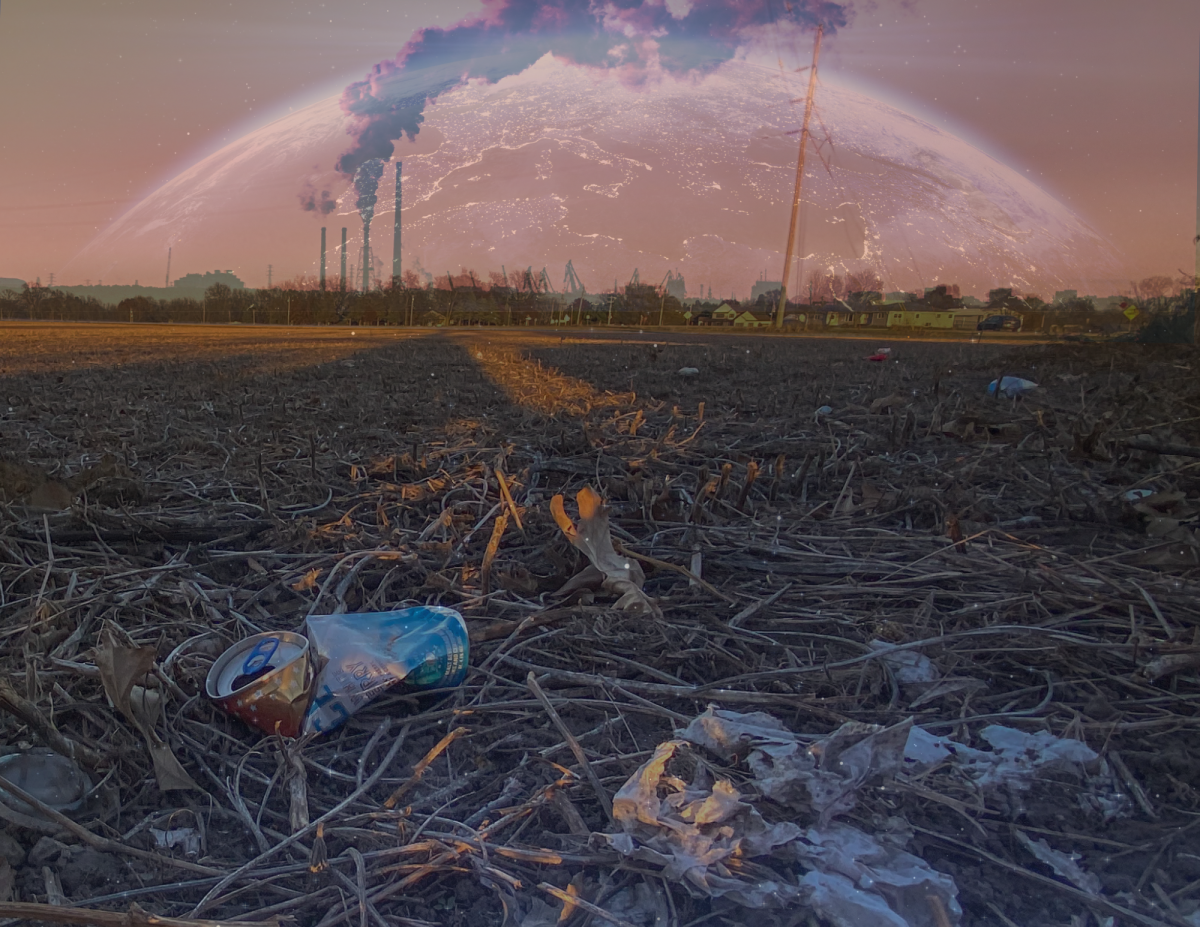“This is a death sentence,” said Barbados Prime Minister Mia Mottley at the COP28 climate summit in Dec. 2023. She had said the same thing at COP26 two years earlier–nations just didn’t listen.
The “death sentence” is what will come from the planet’s imminent 1.5°C temperature increase. With 90% of climate-induced deaths reported in developing countries, it has become clear that developing nations are facing the brunt of the climate crisis. Having a fossil fuels-based structure of economic development and disproportionate rates of emissions, most, if not all, of the responsibility should fall in the hands of the developed world.
Despite President Biden’s seemingly ambitious climate efforts such as the Inflation Reduction Act’s (IRA) $369 billion in incentives and funding for renewable energy projects, the country still seems to fall short of international climate goals. Specific projections have estimated the United States may fall 23%-37% short of its 2030 reduction goals under the Paris climate agreement, which were to supposedly cut emissions by 50-52% of what they were in 2005.
“It needs to happen now,” said PV physics teacher Ian Spangenberg on the urgency of comprehensive climate policy. “Is that going to happen policy-wise? Realistically, no,” he continued, addressing the complications of government action, industry and society.
However, what is perhaps the United States’ most disastrous failure in regards to the climate crisis, is its incredibly weak ability to sustain or fund international climate efforts.
Biden’s pledge to allocate a yearly sum of $11 billion in international climate funding by 2024, though steadily on track to be fulfilled, may not be sufficient enough. The International Energy Agency estimates that a global transition to net-zero emissions would actually cost approximately $4 trillion each year for 30 years.
Junior Becca Hahm believes wealthier countries are more than capable of providing much of this funding. “Countries like the United States and China are some of the top contributors to carbon emissions. They are also two of the most developed economies, so they should be more than able to provide global support to countries that are reaping the effects of climate change,” said Hahm, an avid member of the Environmental Club, which has made it part of their 2023-2024 mission to bring climate action to the halls of Pleasant Valley High School.
Since the United States is responsible for about 15% of annual global emissions and the United States economy similarly accounts for 15% of the global economy, a truly just, equitable and proportional global transition would require a $600 billion yearly contribution from the United States–Biden’s $11 billion is only 18% of that. Though $600 billion may seem like a staggering number, it seems more affordable when considered under the yearly federal budget, as it is still less than 10% of what the federal government spent in 2022.
Prime Minister Mottley’s speech at COP28 accentuated this increased responsibility of wealthy nations in solving the climate crisis.
After Barbados suffered months of abnormally active rainstorms, the leader released an address to the nation of Barbados on Jan. 6 promising disaster-relief and infrastructure programs but unfortunately unable to promise deterrence of climate change, saying instead, “it is what it is.” Of course, there is not much a country responsible for less than 0.01% of global emissions can do to prevent the impacts of climate change.
Spangenberg, who hosted a climate change lecture at an Environmental Club meeting in early November, brought up the financial responsibility of developed countries as a moral issue. “We’re trying to make other countries start off with really expensive energy production–wind and solar–even though we got to develop our economy with really cheap carbon [polluting] energy,” said Spangenberg. “[Smaller and developing nations] are now suffering the consequences of what we did to advance our economy.”
Climate disasters like those seen in Barbados and other parts of the Caribbean are direct consequences of human-induced climate change, and are the reason why developing nations are disproportionately vulnerable to climate change. Many are located in particularly climate-vulnerable areas and do not have sufficient economies to mitigate damage. These are the consequences of mainly Western carbon-based ideals of development.
But the United States is not entirely at fault. While still falling short of equitable international climate responsibility, the Biden administration did resume American funding of the Green Climate Fund (GCF), a global fund for climate reparations. With Biden’s continued funding, the United States donated a total of $3 billion.
$3 billion is an incredibly low amount of funding for climate reparations, but it makes up about 22% of the fund’s total reserve, which has only accumulated $13.5 billion globally. The lack of funding is a representation of a global lack of collaborative effort. Although, it is still notable that smaller nations like France and the U.K. donated amounts to that given by the United States.
“There is a lack of global communication and coordination [in climate negotiations],” reflected Hahm. “The climate crisis is affecting every single country on Earth as a whole, but disagreements and poor international relationships are preventing us from putting it behind us to fight the greater cause.”
Corporate interests and intentionally vague resolutions clouded the results of COP28, and its Loss and Damages Committee (LDC), which was meant to aid countries like Barbados in repairing climate damage, only managed to collect 0.001% of its $400 billion funding target. The U.S. particularly contributed a measly $17 million to the committee.
However, as poor as these agreements may have been, an international climate agreement signed by nearly 200 nations is a remarkable achievement in and of itself.
And domestically, the general efforts of the Biden administration are also notable considering the prevalence of anti-science rhetoric in American political discourse.
“Given the hand they were dealt, the Biden administration is doing a remarkably good job,” Harvard energy and environmental economist Robert Stavins told E&E News in an article which noted the possibility for the United States, if continuing to introduce policies like the IRA, to reach at least 45% carbon-energy reduction by 2035.
Domestic regulation of American emissions and meaningful climate policy is the starting point to fulfilling the United States’ role in funding a global climate transition–decreasing their own emissions and setting an example for other wealthy nations to follow. With the GCF planning a second round of mobilization starting as early as this year, a second wave of Western funding may be imminent. Depending on the outcome of the 2024 presidential election, the U.S. could have the opportunity to lead the global effort of mobilization.
Though climate developments may seem unpromising, it is important to acknowledge that a crucial governmental and diplomatic shift cannot occur without a clear and pressuring social shift. Americans must be open to increasing federal spending on both international and domestic climate mitigation efforts, understanding that international climate action is as much for the good of international neighbors as it is for the good of American citizens.
“Climate change, it doesn’t respect international borders,” said Spangenberg. And neither should the green movement–it should be fundamentally approached through a global lens. Impactful environmental change and efficient climate policy is possible and achievable, as long as people and governments alike are willing to commit to collaborative, global solutions.









